News
FéminAs makes a stand for the vital role of women in transmitting culinary culture
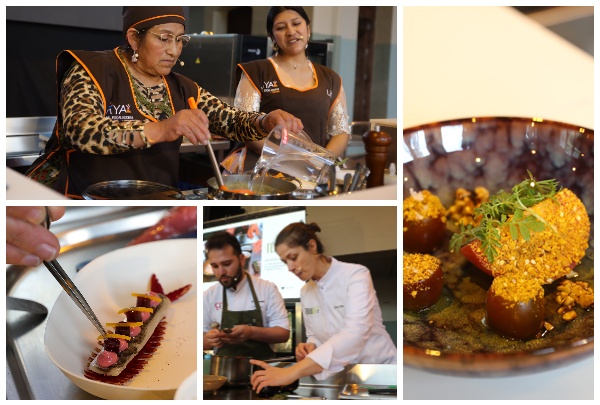
With Pozo San Luis, Asturias' industrial mining heritage, as a backdrop to the first day of its third round, FéminAs showcases the role of mothers and grandmothers in transmitting traditional cuisine, and seeks inspiration there.
The mining basins are the scenario for the third International Congress of Gastronomy, Women and the Rural Milieu, and the first day was spent at an emblematic monument to mining culture, Pozo San Luis, a construction belonging to the Carbones La Nueva company (Langreo), a major industrial player in the area until it was closed in 2002. In this space commemorating the Samuño Valley's mining history, women from different parts of the world pointed to the crucial role played by their ancestors in transmitting a culinary tradition that deserves respect.
Berta Piñán, the Principality of Asturias' Secretary of Culture and Tourism, welcomed FéminAs congress-goers with a reminder that the mining tradition in Asturias "is us too", and expressed her pleasure with another congress this year, because “FéminAs is the perfect recipe for Asturias, since it represents a sustainable equality model which does not forsake its roots”. Benjamín Lana, head of Vocento's gastronomy division, echoed her words, mentioning "the inclusive space" this region constitutes, where "Asturias' own geography has maintained the purity of all rural cuisine, a wealth of cookery that has remained in place here while other territories have lost it".
Tradition, and the transmission of this cultural and culinary legacy, were also very much on the agenda of the female chefs on the FéminAs stage on Monday, the first day of the congress. One of them was Diana Díaz, who runs the floor at El Invernadero* (Madrid), and remembered her mother and grandmother as "those who made me love cookery and a job well done", cookery which she cannot understand if it is not "rooted in the countryside". A basis for her conception of gastronomy alongside chef Rodrigo de la Calle, with whom she works closely to create the vegetable cuisine that is the Madrid restaurant's typical fare. Nor did Vicky Sevilla, the youngest chef to earn a Michelin star in Spain for her restaurant Arrels* (Sagunto), forget to mention her predecessors: “I'm a village girl, and my inspiration has always been my mother and my grandmother, and that's why a lot of my recipes are based on their cooking. Almost all my basics are traditional stews, because I like to put taste first, and few recipes are tastier than a stew. We create each recipe through a combination of tradition and more modern techniques". Vicky made a stand for the fusion between tradition and state-of-the-art, and was supported in this by Italian Isabella Potí, chef at the Michelin starred Bros (Lecce), who reminded the congress that “women have always been in charge of the kitchen". Something that has not been forgotten in her native Puglia: “in Salento women have always been responsible for conveying culinary culture, because they have always managed the "masserie", Italy's old self-sufficient farmsteads that produced all the food used to feed the family, something which is tremendously relevant, because in those days it was a choice between autarchy or death", claimed the young Italian.
From the Mediterranean to the high plains of Bolivia, signalling the arrival of the "cholita" mountaineers, bringing Asturias the pride of indigenous peoples and their excellent broths and soups. “In Bolivia we're always making soup. First of all a liquid course, and then a dry course”, explained Dora Magueño, a mountain cook and "cholita" climber who, alongside daughter Ana Lía Gonzáles, showed congress-goers how to make "chairo paceño". “A traditional soup from the La Paz 'departamento', made to feed climbers at the camps, because it's easy to digest and hydrates them, a very important concept to enable them to adapt to the altitude", explained Lía. With the soup boiling, a broth made with vegetables and "ancient ingredients used by our Aymara and Inca ancestors, such as "chuño" (dehydrated potato), Dora and Lía also dwelt on the tale of betterment that has led them to act as a role model for many women.
Indigenous women, poor, charged with home and family, many "cholas" worked as mountain cooks while their partners, mountain guides, accompanied foreign climbers to the top of Bolivia's mountains. Change came when a group of them decided to leave their pots behind and climb to those summits as well. "We were asleep, but now we've come out into the world and we're doing what we enjoy doing", explained the daughter, while her mother added that "wanting to do something means being able to do something, and we women can do many things".
It was also in Bolivia that Danish chef Kamilla Seidler learned the need to create a team and respect produce. Before she opened her own restaurant - in Copenhagen she ran Gustu, a school-restaurant which emerged to improve the opportunities and standards of living of a vulnerable population and promote local produce - Kamilla learned many things from her experiences in Latin America (a distinction in 2016 as Latin America's Best Female Chef). “In La Paz I was more of a psychologist than a chef", said Seidler, "because everything is done as a team in the kitchen", adding that "we should also be talking about gender equality, because I had no female references when I started out. This makes events such as FéminAs extremely useful".
References were also a talking point among the three guests at the round table discussing the formation of kitchen crews: Yolanda León, chef at Cocinandos* and lecturer at the Ciudad de León VET centre; Inés Butrón, lecturer at Barcelona's Culinary Institute; and Beatriz Sotelo, chef and lecturer at the Paseo das Pontes VET centre (A Coruña), who admitted that the role of mentors is important during the learning process. The three also agreed on the need for vocation in this profession, which "is very tough, and students need a reality check, to understand that this is a profession, and not a hobby”, said Beatriz.
Finally, they addressed the problem of staffing in a sector which has taken on board "fewer students and less of the culture of hard work". Their recipe to combat this is very simple: “the profession must have dignity, and attention must be paid to kitchen crews. We must all work to ensure that such a wonderful profession is also a pleasant profession that can be combined with personal life", said Yolanda León.
A final round table completed the first day, with a discussion of the role of gastronomy as a tool for social insertion, citing the example of La Cascada de la Raspa, a restaurant in Trillo (Guadalajara) run by Chema de Isidro, chef and member of the NGO Gastronomía Solidaria. This organisation trains people risking social exclusion, mainly in catering and cookery, and achieves employment insertion rates of up to 90%.


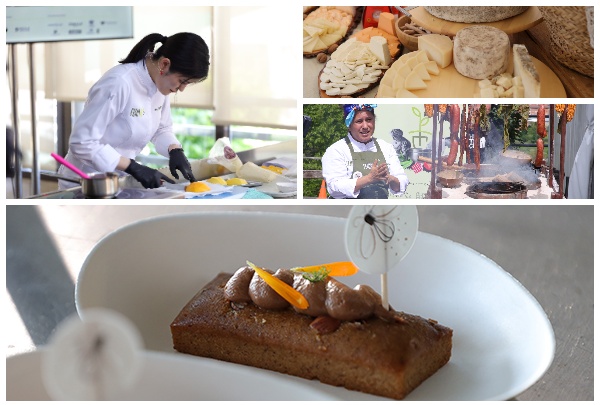
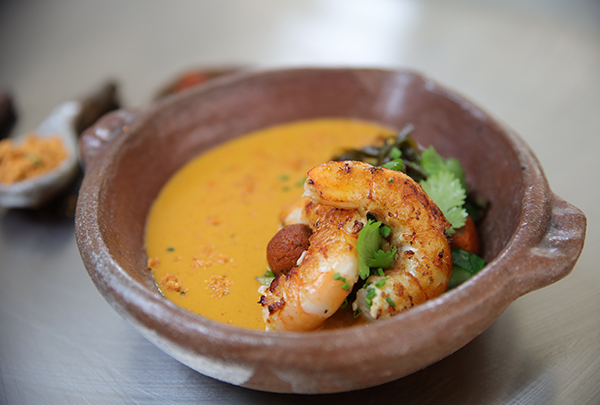
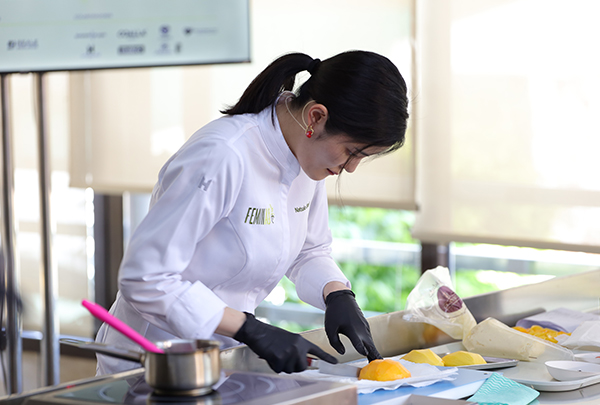
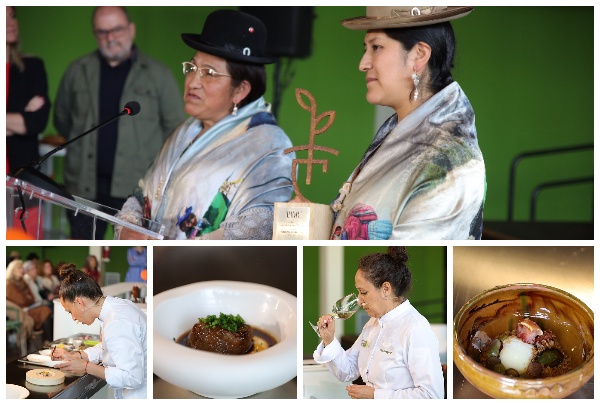
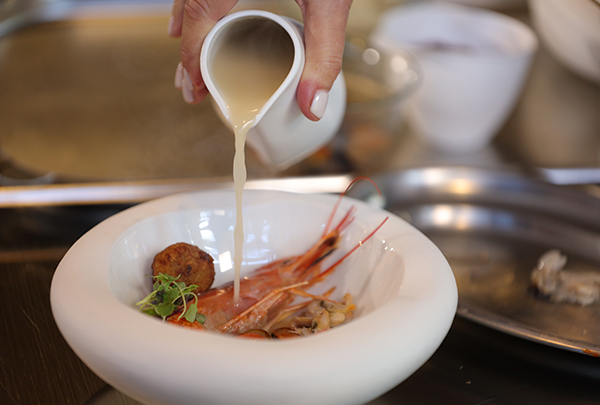
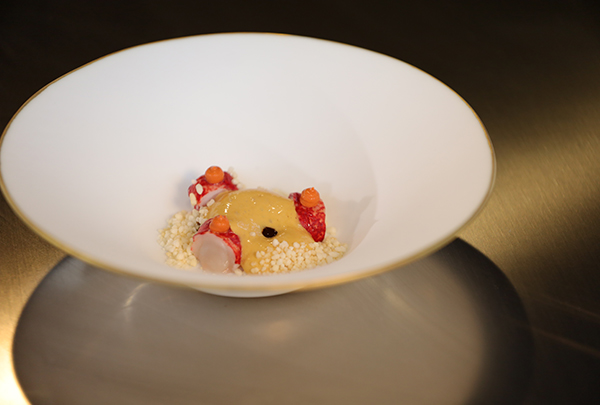
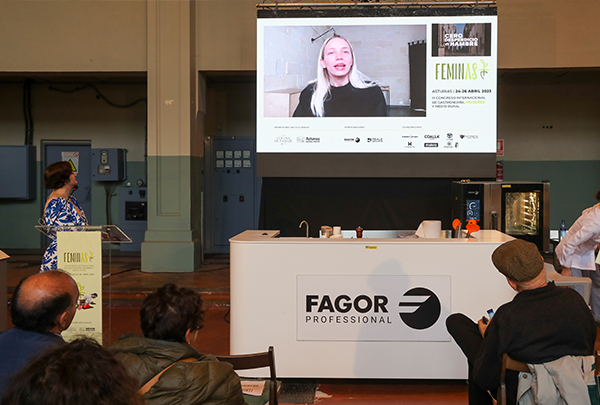
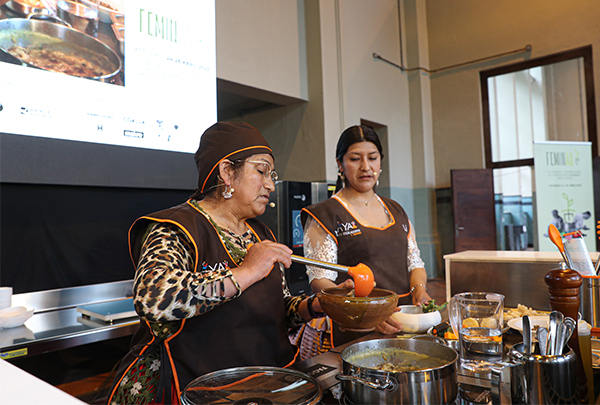
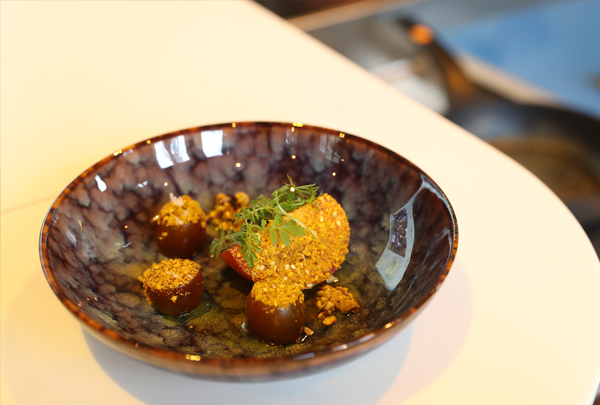
.jpg)










